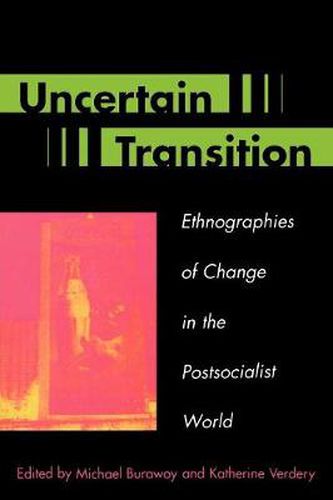Readings Newsletter
Become a Readings Member to make your shopping experience even easier.
Sign in or sign up for free!
You’re not far away from qualifying for FREE standard shipping within Australia
You’ve qualified for FREE standard shipping within Australia
The cart is loading…






The ethnographies collected here offer a surprising and compelling picture of change in Russia and Eastern Europe found in no other book to date. Looking at the everyday processes by which individuals and groups forge new lives, the authors challenge the idea that we can understand this transformation by the predictable models_whether capitalism, post-socialism, modernity, or postmodernity. The collection brings together a wide-ranging group of authors from sociology, anthropology, and political science to reveal the complex relationships that still exist between the former socialist world and the world today. Through evocative ethnographic research and writing, they bring to light the unintended consequences of change and show how the ‘slates’ of the past enter the present not as legacies_but as novel adaptations. Often what appear as ‘restorations’ of patterns familiar from socialism are something quite different: direct responses to the new market initiatives. By showing the unexpected ways in which these new patterns are emerging, this book charts a new and important course for the study of post-socialist transition.
$9.00 standard shipping within Australia
FREE standard shipping within Australia for orders over $100.00
Express & International shipping calculated at checkout
The ethnographies collected here offer a surprising and compelling picture of change in Russia and Eastern Europe found in no other book to date. Looking at the everyday processes by which individuals and groups forge new lives, the authors challenge the idea that we can understand this transformation by the predictable models_whether capitalism, post-socialism, modernity, or postmodernity. The collection brings together a wide-ranging group of authors from sociology, anthropology, and political science to reveal the complex relationships that still exist between the former socialist world and the world today. Through evocative ethnographic research and writing, they bring to light the unintended consequences of change and show how the ‘slates’ of the past enter the present not as legacies_but as novel adaptations. Often what appear as ‘restorations’ of patterns familiar from socialism are something quite different: direct responses to the new market initiatives. By showing the unexpected ways in which these new patterns are emerging, this book charts a new and important course for the study of post-socialist transition.